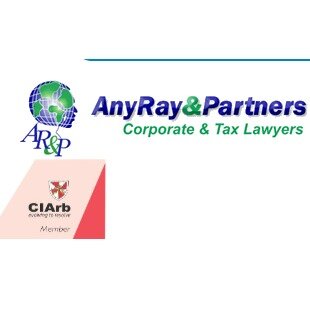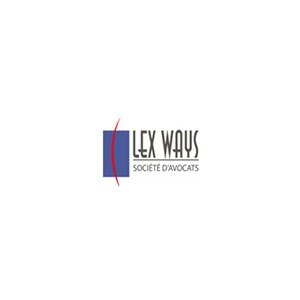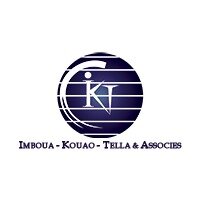Best Nonprofit & Charitable Organizations Lawyers in Ivory Coast
Share your needs with us, get contacted by law firms.
Free. Takes 2 min.
Or refine your search by selecting a city:
List of the best lawyers in Ivory Coast
About Nonprofit & Charitable Organizations Law in Ivory Coast
In Ivory Coast, nonprofit and charitable organizations play a crucial role in addressing social issues, supporting community development, and promoting cultural objectives. These entities are primarily governed under specific regulations ensuring they operate transparently, fulfill their mission, and comply with legal standards. Nonprofit organizations in Ivory Coast, like in many other locations, are often eligible for various tax exemptions and incentives designed to support their societal role. As they grow and interact with other organizations, there is a need for consistent regulatory oversight to ensure these entities continue to serve the public interest effectively.
Why You May Need a Lawyer
Engaging legal counsel can be crucial for navigating the complexities of nonprofit and charitable organization laws in Ivory Coast. Common scenarios necessitating legal input include:
- Establishing a new nonprofit organization, which involves selecting an appropriate legal structure and registering with the relevant authorities.
- Drafting and reviewing governance documents like bylaws to ensure they meet legal requirements and organizational needs.
- Advising on tax-exempt status, including eligibility and application processes to maximize financial advantages.
- Handling disputes or potential litigation involving stakeholders, employees, or external bodies.
- Guiding compliance with local labor laws, financial reporting requirements, and other regulations specific to nonprofit operations.
Local Laws Overview
In Ivory Coast, nonprofit and charitable organizations are primarily governed by the Law on Associations. This law outlines the framework for forming and managing these entities. Key legal aspects include:
- Registration Requirements: Nonprofits must be registered with the Ministry of the Interior and are often required to obtain recognition via a public declaration.
- Governance: Associations must establish clear bylaws outlining governance structures, roles, and responsibilities of board members.
- Financial Accountability: Organizations must maintain transparent accounting practices and provide regular financial reports to retain their status.
- Taxation: Nonprofits can be eligible for tax exemptions upon fulfilling certain criteria, primarily focusing on public benefit purposes.
- Regulatory Compliance: Ongoing activities must align with the stated public interest goals and regulations, necessitating periodic audits or reviews by relevant authorities.
Frequently Asked Questions
What is the process for registering a nonprofit in Ivory Coast?
Usually, you must submit an application to the Ministry of the Interior, complete with your organization’s bylaws and details about its governance structure.
What types of nonprofit organizations can be established in Ivory Coast?
Organizations can range from associations focused on social welfare, cultural development, to community groups operating with public interest objectives.
Are nonprofits in Ivory Coast eligible for tax exemptions?
Yes, but they must meet specific criteria, primarily serving public interest aims, and apply for recognition of their tax-exempt status.
What legal documents are essential for forming a nonprofit?
Key documents include the organization's constitution, bylaws, and declarations of purpose, which must align with legal and regulatory standards.
How does one ensure compliance with financial reporting requirements?
Nonprofits should maintain detailed financial records and conduct regular audits to adhere to regulatory standards and maintain transparency.
Can foreign entities establish nonprofit operations in Ivory Coast?
Foreign entities can operate nonprofit activities, but they may need to fulfill additional requirements and obtain permissions from the government.
What happens if a nonprofit violates its stated purposes?
Nonprofits could face penalties including the revocation of their status, fines, or legal action depending on the severity of the infraction.
Is it necessary to hire a lawyer to set up a nonprofit?
While not mandatory, an attorney can provide valuable assistance in navigating legal intricacies, ensuring compliance, and drafting essential documents.
What are the key governance structures for a nonprofit?
Typically, governance structures include a board of directors, executive officers, and defined roles for effective management and operation.
Can a nonprofit engage in profit-generating activities?
Nonprofits may engage in income-generating activities as long as the profits support their primary mission and comply with tax regulations.
Additional Resources
For those seeking more information or assistance, consider reaching out to these resources:
- Ministry of the Interior: The primary governmental body responsible for the registration and regulation of nonprofit organizations.
- Local Legal Practices: Consultative services from law firms specializing in nonprofit law can provide tailored advice and support.
- Civil Society Organizations: Networks of nonprofits in Ivory Coast often share resources and offer peer support for compliance and operations.
Next Steps
If you are considering establishing a nonprofit in Ivory Coast, or require legal assistance, begin by consulting with a legal professional specializing in nonprofit organizations. Research potential firms or legal advisors with expertise in this field, and prepare to provide detailed information about your organizational goals and structure. Keep abreast of legal developments by engaging with sector networks or attending relevant workshops and seminars to continually align with best practices and legal standards.
Lawzana helps you find the best lawyers and law firms in Ivory Coast through a curated and pre-screened list of qualified legal professionals. Our platform offers rankings and detailed profiles of attorneys and law firms, allowing you to compare based on practice areas, including Nonprofit & Charitable Organizations, experience, and client feedback.
Each profile includes a description of the firm's areas of practice, client reviews, team members and partners, year of establishment, spoken languages, office locations, contact information, social media presence, and any published articles or resources. Most firms on our platform speak English and are experienced in both local and international legal matters.
Get a quote from top-rated law firms in Ivory Coast — quickly, securely, and without unnecessary hassle.
Disclaimer:
The information provided on this page is for general informational purposes only and does not constitute legal advice. While we strive to ensure the accuracy and relevance of the content, legal information may change over time, and interpretations of the law can vary. You should always consult with a qualified legal professional for advice specific to your situation.
We disclaim all liability for actions taken or not taken based on the content of this page. If you believe any information is incorrect or outdated, please contact us, and we will review and update it where appropriate.
Browse nonprofit & charitable organizations law firms by city in Ivory Coast
Refine your search by selecting a city.












